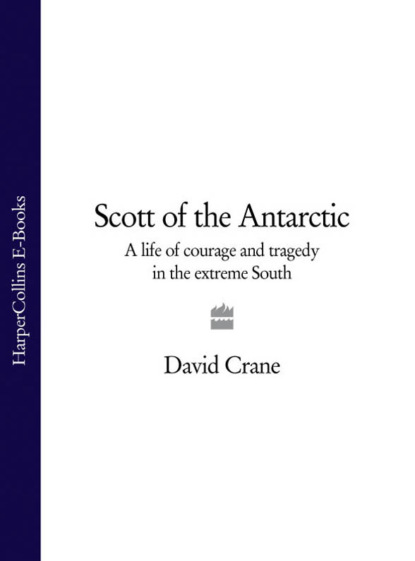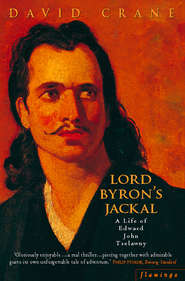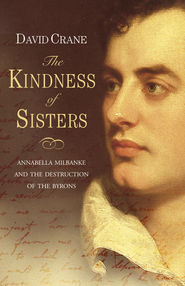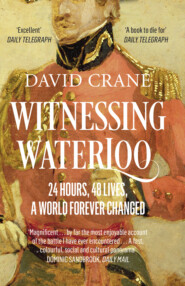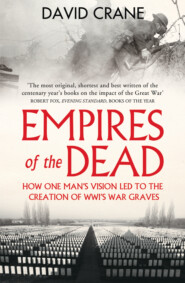По всем вопросам обращайтесь на: info@litportal.ru
(©) 2003-2024.
✖
Scott of the Antarctic: A Life of Courage and Tragedy in the Extreme South
Настройки чтения
Размер шрифта
Высота строк
Поля
Then why do our men guard it?
Two lie prone, but one sits up
Over his hands there hovers a Cup
Amundsen says he won that Cup
Then why does our man hold it?
‘Devil’s Ballroom’ and ‘Devil’s Ravine’
Naming the vastnesses! What does he mean?
‘Shambles’, the dogs explain that name
Where they lie butchered – exhausted and lame
With bringing him up! …
Over the tent and into the tent
Floats the wonderful Cup
Hovers and touches those that lie prone
And then to the Master – who sits alone
Fire – Blood – or Wine?
He sees right into the Thing Divine
For he sits up
Into his hands – the Holy Grail
Into his body – cease of pain
Into his heart – a voice says ‘Hail’
And he knows he has won that Cup.
Amundsen says he won the Cup
Then why does our man hold it?
If ever a man needed saving from the enthusiasm of his admirers, in fact, it was Scott. During the course of his life the impassioned support of Sir Clements Markham would invariably be as much a liability as a help, and in death the jingoistic and imperialist uses to which his name and story were pressed guaranteed that when the reaction came it would be bitter and violent. ‘I found an essentially little man,’ Trevor Griffiths, the dramatist and influential populariser of the hostile modern ‘Scott myth’, wrote in 1985, ‘of deeply ordinary talent: light, conventional, fearful, uncertain, manipulative, ill-tempered, irrational, secretive, driven, at times touching in his misery, trapped inside a particular class-specific Englishness, unequipped, uncharismatic.’
Were the sentiments expressed in E. Clacy’s poem the only ones heard at Scott’s death, the backlash that has seen his reputation plummet over the last years might be understandable; but his tragedy touched the popular imagination in ways that had nothing to do with imperial destiny, ‘class-specifics’ or ‘Englishness’. The race for the Poles in the Heroic Age of Exploration had certainly excited intense national rivalries, but as the telegrams, donations and letters of condolence poured in from Toronto and Lyttelton, and from Tempico and Christiania, all that was forgotten in a sympathy that predicates a shared – and almost proprietorial – pride in his end.
This picture of universal sorrow is not the whole story, of course – even in these first days the doubts and questions were there – but when Dean Inge declared Scott’s triumph over the grave, it was not just an expression of Christian hope but an absolute conviction that Death had no sting to wound a man who had lived and died as Scott. When he was interviewed in New York, Shackleton might publicly wonder how Scott’s party could have succumbed to a mere blizzard, but not in even his most sanguine moments could he have seen what would happen, or anticipate his own posthumous metamorphosis from Edwardian freebooter into middle-management guru while the beau ideal of English chivalry became a byword for bungling incompetence.
There are few things that more poignantly signal the remoteness of Dean Inge’s age from our own, because while nothing is more inevitable or healthier than historical revisionism, what has happened to Scott’s reputation requires some other label. It might seem odd from this distance that neo-Georgian England should find in a Darwin-carrying agnostic of Scott’s cast the type of Christian sacrifice, but the historical process that has shrunk the rich, complex and deeply human set of associations that once clustered round his story into an allegory of arrogance, selfishness and moral stupidity is every bit as extraordinary. How has a life that was once seen as a long struggle of duty been transformed into the embodiment of self-interested calculation? How has the name of the meticulous and ‘cautious explorer’ his men followed become synonymous with reckless waste? How has the son and husband his mother and wife described become the type of English emotional inadequacy? By what process does a tenderness for animal life become a pathological disorder that belongs to the psychology of military incompetence? What is it that stops a whole age hearing in the cadences, the measure and the sentiment of Scott’s last harrowing appeal to the public, the words of the dying Hamlet?
The most tempting answer is suggested by the cultural and political overtones implicit in Trevor Griffiths’ use of the word ‘Englishness’, because if Scott was once celebrated as the incarnation of everything an Englishman should be, he is now damned as the sad embodiment of everything he actually was. It is very hard to imagine that Scott’s reputation would have taken the battering it has if he had been Irish or Australian, but in his real and perceived ‘Englishness’ the hero of St Paul’s has answered the revisionist needs of a post-colonial age as perfectly as General Gordon once did those of Bloomsbury.
But if the historiography of the Heroic Age has always been as political as the expeditions themselves – polar archives bear witness to that – it would be too easy to take this as the full answer. From the early 1960s historians and biographers were constantly exploiting one or other partisan line, yet buried beneath their different cultural or partisan agenda lies a more fundamental lack of sympathy for Scott’s age that has nothing to do with nationality or bias.
In many ways, of course, the simple truth is that we know more about Scott’s weaknesses and the failures of his leadership than did the congregation at St Paul’s, but it is not that we see him differently from the way they did, but that that we see him the same, and instinctively do not like it. As an age we no longer hear what A.C. Bradley called the ‘Othello Music’ of high eloquence, no longer, mercifully, believe it. At the time of Scott’s death men and women clutched at the proof he offered that the qualities that had once made Britain great were not extinct, but with the knowledge of what lay only two years ahead – the hidebound failure of Jutland, the hopeless heroism and obscene waste of the Western Front – the ideals of duty, self-sacrifice, discipline, patriotism and hierarchy associated with his tragedy take on a different and more sinister colouring. This is too seminal and too valid an insight to give up, but somewhere between the Scott of St Paul’s and the Scott of modern myth lies a profoundly more complex and interesting figure. Of all the explorers of the Heroic Age he is the most interesting, and if Scott had never gone to the Pole, and we had never heard of him, his life, with its alternating rhythms of obscurity and fame, of duty and ambition, of success and failure and the corrosive temptations of them both, would still be the stuff of the English novel from George Eliot to George Gissing.
It was Scott’s fate, however, to be plucked from the pages of a domestic novel and placed, quite literally, between the covers of an A.E.W. Mason tale of heroic adventure. It is the moral of Gray’s ‘Elegy’ in reverse: a life destined for Stoke Poges rerouted to St Paul’s. This is its fascination. It would be moving enough in any context, but set it against its Antarctic background, against a world where every hairline crack becomes a fissure, every inadequacy is ruthlessly exposed, every motive publicly interrogated and every resource of moral and physical courage challenged, and one has the unique appeal of Scott’s story.
‘To me, and perhaps to you,’ wrote Apsley Cherry-Garrard, one of the party who found the frozen bodies of Scott and his companions, ‘the interest in this story is the men, and it is the spirit of the men.’ Of no one is this more true than of Scott himself. It is this that makes a rounded sense of his whole life and personality so crucial to any understanding of the successes and failures of his two great expeditions. History can take one so far; science can answer so many questions. But those ultimate questions that still swirl about Scott’s last tent can be resolved by neither. They belong to a sense of Scott the man and to the imagination in a way that lifts his story out of the esoterica of polar history and places it in the mainstream of human experience.
TWO Childhood and Dartmouth (#ulink_d965cc6a-873d-5f3e-b94f-39c1fdf10314)
There was a time, and not so long ago either, when gentle people were so gentle that the males could not with the countenance of their families enter upon any profession other than the Army, the Navy, or the Church.
Gilbert Cannan, The Road to Come (1913)
TWO YEARS BEFORE the outbreak of the First World War, at just about the same time that Scott was refining the concept of gentility for a whole age, a Royal Naval officer confidently told an Admiralty committee, set up to explore the question of commissions from the lower deck, that it took three generations to make a gentleman.
If anyone was searching for a clue to the simultaneous social durability and decline of Britain as a great industrial power, they could do a lot worse than settle on that. For many a European the only surprise about the formula would have been that the process could be so rapid; but it has always been Britain’s genius and curse to dangle the hopes of gentility before an aspirant population, absorbing and anaesthetising the nation’s energies and talents into the comforting and inclusive orbit of respectability encompassed by that word ‘gentleman’.
There is a case, anyway, for arguing that only pedantry, snobbery or family romance could ask for a longer genealogical perspective, and certainly none is needed for Scott’s family. His early biographers liked to detect a likeness to the ‘great Sir Walter’ in his features, but for all the family traditions of Border raiders, Buccleuch connections and Jacobites hanged at York, the only family history that had any relevance to Scott himself begins with his grandfather, Robert.
(#litres_trial_promo)
The son of a schoolteacher who had come to the West Country from France, where the family had gone after the ’ 45, Robert Scott was born in 1784, and after four years ‘in a subordinate capacity’ was promoted in 1806 to purser in the Royal Navy. At the end of the Napoleonic Wars he was serving – prophetically enough in the light of his grandson’s future career – in HMS Erebus, and within five years had amassed enough from prize money or graft to buy with his brother Edward a brewery in Plymouth for £4, 782. Robert Scott had married in 1816, and in the same year that the two brothers acquired the Hoegate Brewery took the lease from Sir John Aubyn on a house at Stoke Damerel on the outskirts of Devonport. The house was more a Regency cottage than anything grander when Robert bought it, but by the time he had finished adding to it, ‘Outlands’ had become the outward symbol of the Scotts’ ambitions, a country gentleman’s residence in miniature, complete with servants, outbuildings, shrubberies, paddocks, orchard, governesses, nurses, pets, peacock and stream.
In a small way Robert Scott was the nightmare of Jane Austen’s Sir Walter Elliot made flesh, the Napoleonic War carpetbagger come good. It is not clear how close an interest he ever took in his brewery, but while it was certainly enough to lead to quarrels with his brother, he had other ambitions for his children, sending four of his five sons into the army or navy, and leaving only the youngest, John Edward – Robert Falcon Scott’s father – to maintain an increasingly distasteful connection with trade.
If the brewery had ever made very much money, it had ceased to do so by the time of Robert’s death, and Scott’s father was left with the tastes of a gentleman and very little on which to support them. The death of Robert also led to a protracted family challenge over the ownership of Outlands, and in 1862 John played the only card available to a man spoiled for business and useless for much else, and married a Hannah Cuming, the twenty-one-year-old daughter of a prominent figure in the Plymouth insurance and maritime world.
John and Hannah Scott had six children who survived infancy – Ettie, Rose, Robert Falcon (always known as ‘Con’), Grace, Archie and Katherine – and it is in their memories that this marriage and Outlands life most vividly survive. ‘Mr Scott girded against the enforced restriction of a business life which was uncongenial to his tastes,’ wrote George Seaver, the last biographical link, through Con’s sister Grace, with that generation of the Scott family, ‘and although he interested himself in local affairs in Devonport where he was magistrate and Chairman of the Conservative Association, these pursuits provided no adequate outlet for a man of his capability … Lack of means, lack of health, and lack of opportunity bred in him a baleful sense of inferiority, the result of inhibitions, which gave rise to the most explosive temper – by no means improved by the periodical visits of his brothers, who stirred his envy by their accounts of thrilling adventures in foreign fields.’
It is hard to know how just this is, or how much it reflects the resentment of a daughter who always had to take second place to her two brothers. The few surviving letters from Con’s early days certainly suggest an affectionate and easy-going relationship between father and son, but a letter written in a tent in Antarctica just before his death conjures up the John Scott of Grace’s memory. ‘The inherited vice from my side of the family is indolence,’ Scott warned his wife about their own son; ‘above all he must guard, and you must guard him against that. I had to force myself into being strenuous as you know – had always an inclination to be idle. My father was idle and it brought much trouble.’
Side by side in photographs, Scott’s parents certainly look an oddly suited pair, John Scott bearded, irresolute, almost characterless, his wife Hannah refined, intelligent, discriminating and kindly formidable. It seems unlikely that the Cuming family ever let John Scott forget that it was their money that had kept Outlands in the family, and it was Hannah who ruled, and her brand of genteel, slightly compromised, mid-Victorian Evangelicalism that set the moral tone of the household. ‘Whatever we have cause to bless ourselves for, comes from you,’ her devoted elder son would later write to her at a moment of family tragedy. ‘If ever children had cause to worship their mother, we feel we have, dear … you can never be a burden, but only the bond that keeps us closer together, – the fine example that will guide us all … What is left for you to do is to be the same sweet kind mother that you have always been, our guide and our friend.’
Not that there was anything gloomily oppressive about her influence – their Plymouth Brethren cousins thought the Outlands Scotts ‘damned’ – and the children grew up to a normal, uncomplicated life. ‘As children we were always very happy and ordinary and simple,’ Grace recalled in a bucolic memoir of their Outlands childhood, ‘and though we had a comfortable house and a nice biggish garden there was no money for travel or even simple excitements. As a matter of fact, we did not want them or think about them, for we were brought up a much quieter generation … Our great yearly treat to look forward to was a visit to the Pantomime at the Plymouth Theatre! Though the house was small for such a crowd – seventeen persons when the boys were at home – thanks to the garden, fields, and outhouses, during the day-time we could disperse. We had entire liberty within these bounds which excluded a blacksmith’s forge just outside the shrubbery gate, and a small general shop – good for boiled sweets. I may say that to get the sweets we had to climb a high gate, which was kept locked to keep us from temptation, and failed.’
Robert Falcon Scott was born into this modest Victorian idyll on 6 June 1868, and first ‘enters history’, as J.M. Barrie, his most influential and unscrupulous mythologiser, put it, ‘aged six, blue eyed, long haired, inexpressibly slight and in velveteen, being held out at arm’s length by a servant and dripping horribly, like a half drowned kitten. This is the earliest recollection of him of a sister, who was too young to join a children’s party on that fatal day. But Con, as he was always called, had intimated to her that from her window she would be able to see him taking a noble lead in the festivities in the garden, and she looked; and that is what she saw. He had been showing his guests how superbly he could jump the leat, and had fallen into it.’
This probably says more about the author of Peter Pan than it does about Scott, but if it is hard to see how a nation could swallow it, it does highlight the problem of everything to do with Scott’s youth. There is no reason to imagine that anyone would invent Barrie’s anecdotes for him, but they belong to the world of medieval apocrypha rather than biography, exemplary tales chosen to illustrate either latent greatness or the triumph of will over the sickly, dreamy, introspective, ‘pigeon-chested’, slovenly ‘Old Mooney’ of Barrie-inspired legend.
There is no evidence that Scott was any weaker-chested than many another child, or any ‘dreamier’, but the anecdotes flow with the same dire mix of saccharin charm and cautionary humour – the stream, the ‘ocean’ that only adults could call a pond, the holly tree, the dangers of the glass conservatory, the much-loved pony, Beppo, who would throw any other rider. ‘His first knife is a great event in the life of a boy,’ wrote Barrie, ‘and he is nearly always given it on condition that he keeps it shut. So it was with Con, and a few minutes after he had sworn not to open it he was begging for permission to use it on a tempting sapling. “Very well,” his father said grimly, “but remember, if you hurt yourself, don’t expect any sympathy from me.” The knife was opened, and to cut himself rather badly proved as easy as falling into the leat. The father, however, had not noticed, and the boy put his bleeding hand into his pocket and walked on unconcernedly. This is a good story of a child of seven who all his life suffered extreme nausea from the sight of blood; even in the Discovery days, to get accustomed to “seeing red” he had to force himself to watch Dr. Wilson skinning his specimens.’
For all of Barrie’s efforts to press it into significance, it is the utter normality of Scott’s childhood that is most striking. In later life he, Archie and his oldest sister Ettie would always form a kind of distinctive triumvirate within family councils, but as children they all mucked in together, left pretty much to their own devices by a father busy pottering about his gardens and a mother nursing her ailing parents. ‘Our tastes for sailing were very much encouraged by my uncle Harry, my mother’s brother,’ Grace remembered. ‘On holidays we, that is four girls and two brothers, had glorious days sailing about Plymouth Harbour in an eighteen foot boat with a big lug sail. We were taught to work the boat and had thrilling days out by the Mewstone (the parental limit seawards), or up one of the rivers, where we had been known to be stranded in the mud for hours on a falling tide. Considering our lives were so very sheltered then, so small and bounded, it seemed wonderful to have our sailing freedom.’





